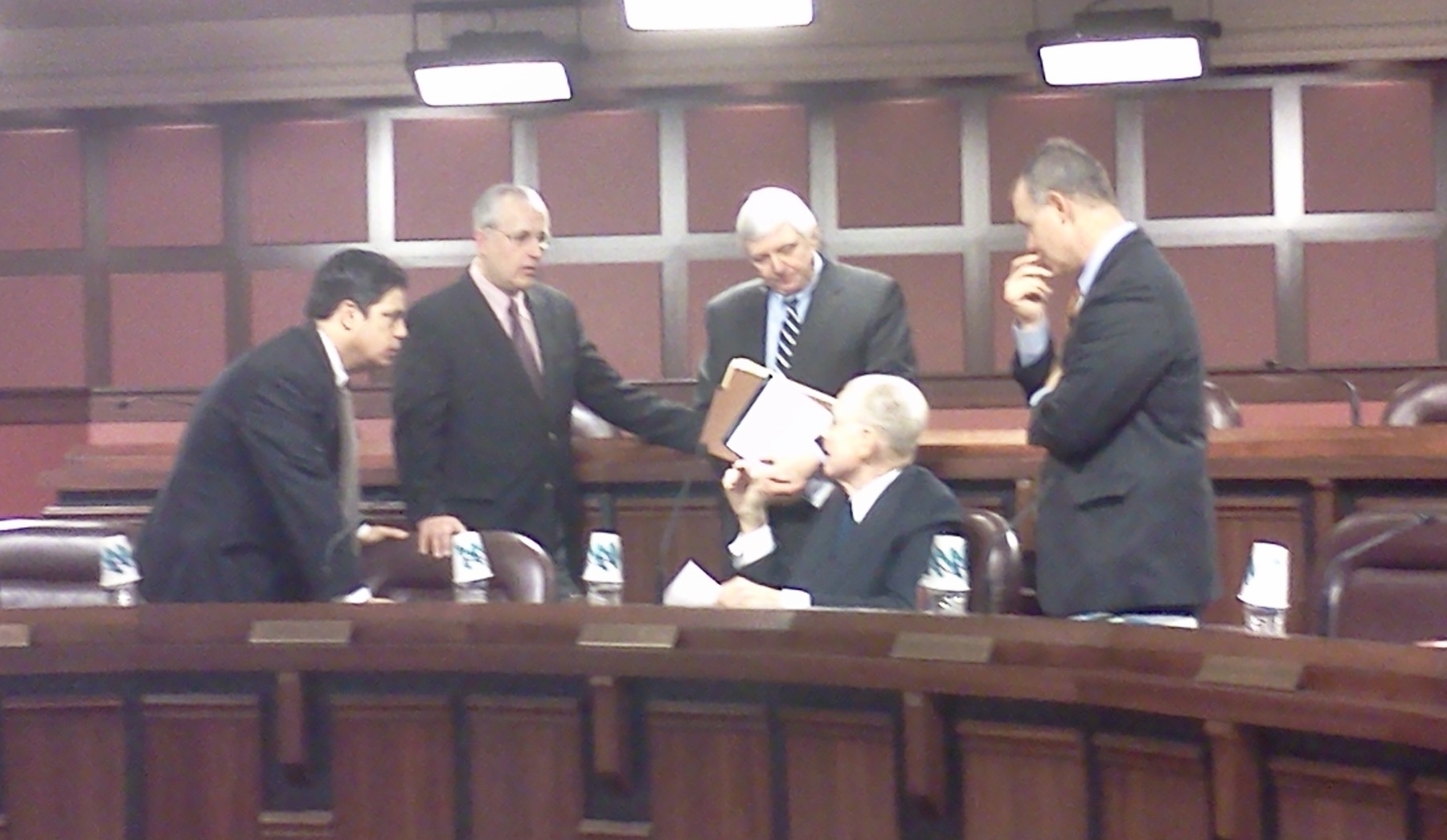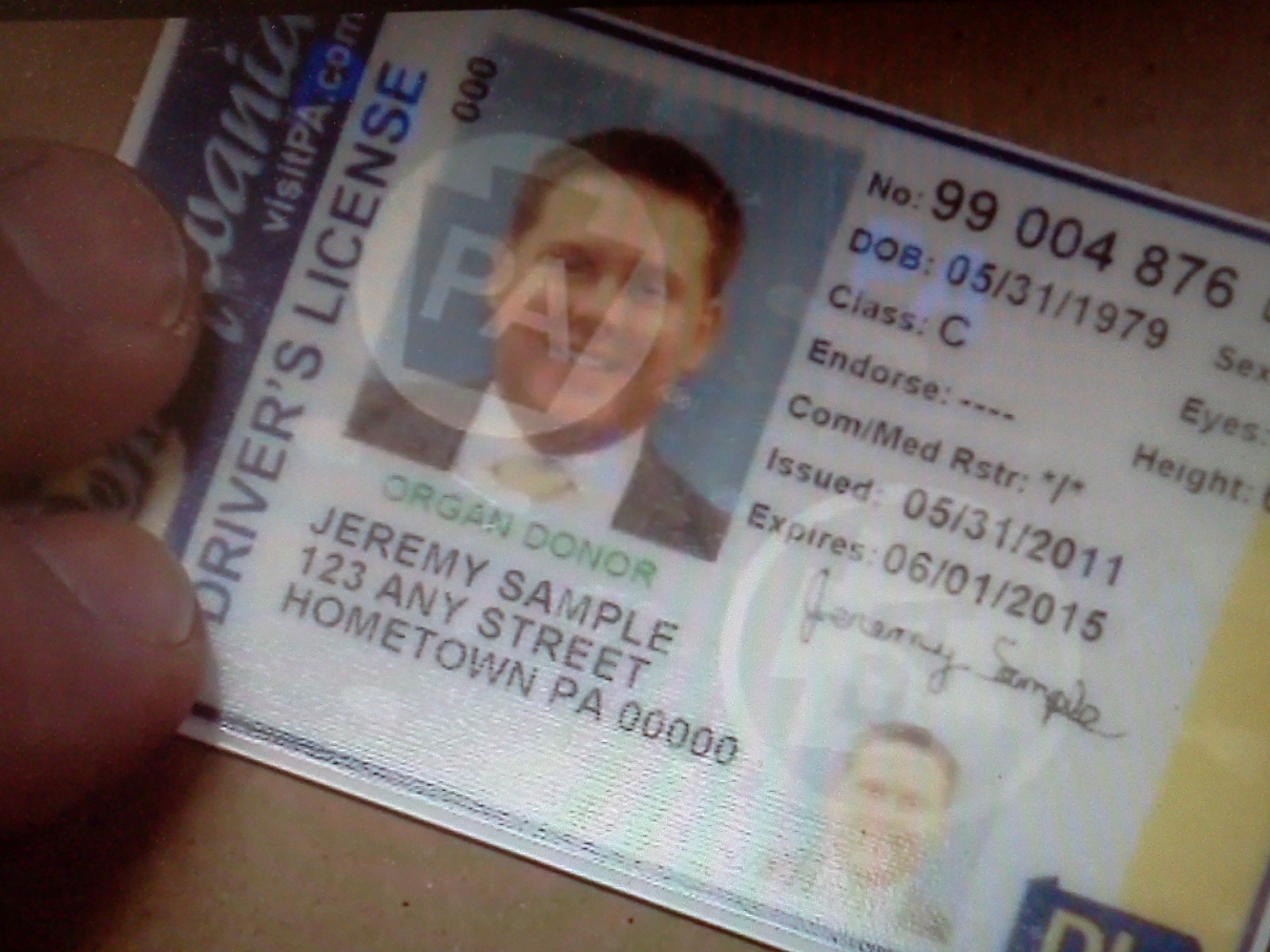Governor Tom Corbett on the NCAA sanctions against Penn State
/in Ask the Governor, Media, News, Video /by PAMattersGovernor Tom Corbett Addresses Public Perceptions in the Sandusky Case
/in Ask the Governor, News /by Brad ChristmanMaking perhaps his most extensive comments on the record to date, Governor Tom Corbett today addressed numerous issues involving the perception that he in any way delayed the Jerry Sandusky investigation for political reasons.
Sandusky is currently awaiting sentencing after being convicted on 45 counts of the sexual abuse of young boys. The former Penn State football defensive coordinator’s fall from grace has dominated the headlines for 10 months, including speculation that Tom Corbett’s run for governor in 2010 (while he was Attorney General) tempted him to delay the investigation until after the election.
Appearing on Radio PA’s Ask the Governor program, Corbett answered direct questions about the perceived controversy and the timeline of events, including his two stints as Attorney General of Pennsylvania (1995-97 and 2005-2011). The governor flatly denied allowing politics of any kind to interfere with his office’s prosecution of Sandusky, calling the notion “insulting.” The governor states that it took time to build the case, which started in 2008 and continued with the announcement of charges in November of 2011, but he says there were no politically-motivated delays during that process. Corbett says there were concerns about the first case of alleged abuse. “We believed that we did not have a case that we could get a conviction on,” referring to the first report to hit his desk. “And what we did is we kept digging and digging and digging.”
Upon taking the office of governor, Corbett handed the case off to newly-appointed Attorney General Linda Kelly, who would eventually announce the charges involving at least 10 victims last November.
Corbett says he was not given any indication of Sandusky’s illicit activities either during his first stint as AG, or when he took office again in 2005. Some have blamed the governor for the lack of a prosecution associated with two now-well known incidents involving Sandusky in 1998 and 2001, a time period when Tom Corbett was in private practice and not holding public office. Corbett addressed two such listener emails during his Ask the Governor appearance.
The governor bristles at the notion that he would have allowed children to be at risk over politics, pointing to his record as a prosecutor. “Nobody has, in my knowledge in state government, done more to protect the children of Pennsylvania in the last 20 years than I have,” Corbett said. The governor points to his successful online predators unit, a program that has served as a model for other states attempting to crack down on internet predators. The effort has resulted in hundreds of arrests and continues to this day.
Video clips of the governor’s comments will be available on PAMatters.com.
Jerry Sandusky is scheduled to be sentenced next month in Centre County.
Researchers Need Public’s Help Tracking Stink Bugs
/in News /by PAMattersOnce Penn State researchers have assembled enough data, they’ll be able to better predict where stink bugs will appear. Entomologist John Tooker is asking Pennsylvanians to report stink bug sightings and damage online. “People can visit and contribute any observations they may have, whether it’s one bug or 10,000 bugs.”
Stink bugs do not sting for bite, so they’re merely annoying to non-farmers. However, they have been blamed for destroying large swaths of fruit crops in recent years.
It’s not all that different from weather forecasting. “If we’re able to understand why the insects are showing up in say York County,” Tooker says, “then maybe we can take that information and help predict when and where they might show up in other counties.”
Most of the stink bugs seem to be in the southern tier counties. While stink bug populations appear to be down this year, Tooker tells us this is the season when adult stink bugs start to become more apparent.
The more people that report stink bug populations to their website, the better success the researchers like professor Tooker will have. “Citizens around the state have a whole lot more eyeballs than the entomologists do.”
Court Date Set for Challenges to Latest State Legislative Maps
/in News /by PAMattersCourt rejection of the first plan sent the state’s Legislative Reapportionment Commission back to the drawing board this summer. Now, a court date has now been set for challenges to the new plan.
The latest maps for state house and senate districts passed the committee, which includes leadership from both chambers, on a 4 to 1 vote in June. Senate Democratic Leader Jay Costa voted against the plan, saying it still had too many unnecessary county splits.
State senate Democrats are again among those challenging the plan. The State Supreme Court will hear oral arguments on the 13 appeals on September 13th in Philadelphia.
The session will be broadcast live on the Pennsylvania Cable Network. Observers will be admitted to the courtroom at Philadelphia’s City Hall on a first-come, first-served basis.
The court’s decision will not impact the November election, since those house and senate seats are being decided using the old legislative maps.
Report Cites Voter Troubles Obtaining Photo ID
/in News /by PAMattersThe Pennsylvania Budget and Policy Center sent a team of volunteers to PennDOT licensing centers, where they found a lack of signage and information about Pennsylvania’s new Voter ID law. They also noted that in three out of every ten cases, individuals were told they had to pay for an ID that should have been made available for free.
“With three months to go until Election Day, the Commonwealth has a lot of work to do to ensure that voters will not be disenfranchised,” says PBPC director Sharon Ward. The report recommends a delay in the implementation of Pennsylvania’s Voter ID law.
Questioned about the report’s findings at an unrelated stop in Franklin County, Governor Tom Corbett was not concerned. “I think in the individual [PennDOT] offices they are working hard. I think sometimes direction can be better, and it’s a learning process,” Corbett told reporters. He stressed that there’s still plenty of time to obtain a photo ID by the November 6th election.
Corbett also notes that there are other forms of valid photo identification under the law besides a PennDOT ID card.
Meanwhile, a Commonwealth Court judge is expected to rule on a “preliminary injunction” regarding the controversial new law later this month. No matter which side loses the court case, the decision will be appealed to the state Supreme Court.
Emerald Ash Borer Spreads in Pennsylvania
/in News /by PAMattersThe Emerald Ash Borer continues to spread in Pennsylvania. Six more counties have been added to the list, bringing to 28 the number of counties in Pennsylvania where the pest has been detected.
State Agriculture officials are urging the public not to transport firewood, its one way the ash borer can be spread. You should burn the wood where you buy it. The ash borer can destroy an ash tree within three years after first drilling into the bark.
The new counties are Bucks, Franklin, Jefferson, Perry, Snyder and Venango.
People who suspect they’ve found one of the beetles in a new area should call the automated pest hotline at 1-866-253-7189. The Emerald ash borer is dark green, about a half inch in length and flies only from early May to September.
Radio PA Roundtable 08.03.12
/in Audio, Media, News, Radio PA Roundtable /by PAMattersOn this week’s Radio PA Roundtable, Brad Christman and Matt Paul discuss the latest Voter ID developments as a Commonwealth Court hearing wrapped this week; you’ll also get a wrap-up of another busy week at Penn State University as attentions shift to on-the-field concerns in the football program; and an update on the efforts to privatize PA Lottery management. You can also play along with Brad and Matt as they offer a quiz on the new AP NFL power poll. Where did your Eagles and Steelers rank?
Radio PA Roundtable is a 30-minute program featuring in-depth reporting on the top news stories of the week.
Click the audio player below to hear the full broadcast:
[audio:https://s3.amazonaws.com/witfaudio/radiopa/Roundtable08-03-12.mp3]Top Democrat: Private Management Agreement Unnecessary for PA Lottery
/in News /by PAMattersThe Pennsylvania Lottery’s 2011-12 Annual Report shows a 10.4% increase in net revenues, which means a record $1.06-billion will be used for programs that benefit the state’s senior citizens.
The positive financial news comes as the state Department of Revenue continues to investigate a potential private management agreement for the lottery, and House Minority Leader Frank Dermody (D-Allegheny) believes that it’s proof no such deal is needed.
“The lottery’s doing quite well and there’s nothing that the current folks can’t do that these new people could do, other than skim profits off the top,” Dermody tells Radio PA. “This is just another solution in search of a problem.”
But the welcome lottery growth has not turned officials off to the idea of entering into a private management agreement. “The need for the programs is going to grow over the next ten to 20 years, and we need to be looking at every possible way to increase the funding for our seniors,” Pennsylvania Lottery Executive Director Todd Rucci said in a telephone interview.
If officials decide to take the next step toward a private management agreement, Revenue Secretary Dan Mueser says invitations for bid could go out in the fall.
Study: Shale Land Concentrated Among Few Landowners
/in News /by PAMattersResearchers at Penn State sought out public records in 11-counties that account for most of the state’s natural gas drilling, and they found that the majority of landowners have little voice in leasing decisions.
Overall, 13% of the land is owned by the state and 27% is owned by nonresidents. That leaves 60% which is owned by county residents. “But of that 60%, the majority of that is owned by the top 10% of landowners,” says Timothy Kelsey, professor of agricultural economics. “So the majority of landowners in the counties collectively own a relatively small proportion of the land area in those counties.”
Nonresidents actually own more than half of the land in the key natural gas-producing counties of Lycoming, Sullivan and Tioga. “The questions about what happens in that community – if it’s based simply on who’s going to lease and who’s not going to lease – the local residents have less voice than the people who don’t live in the community,” professor Kelsey tells Radio PA.
He says the data is important because it helps us to understand how loud of a voice local residents have in drilling decisions, and how broadly distributed royalty & lease dollars may be.
Pennsylvania’s recent Marcellus Shale impact law preempts local zoning authority over oil and gas wells in order to provide uniformity for the growing industry in the state; however Commonwealth Court recently struck down those provisions of the law. The Corbett administration has already indicated it will appeal to the state Supreme Court.
Welcome to PAMatters.com, a new source for news and commentary from Pennsylvania’s capital. In addition to video, audio and pictures from the stories and events that affect YOU, you’ll also get some behind-the-scenes analysis via blogs from our award-winning staff of journalists.










